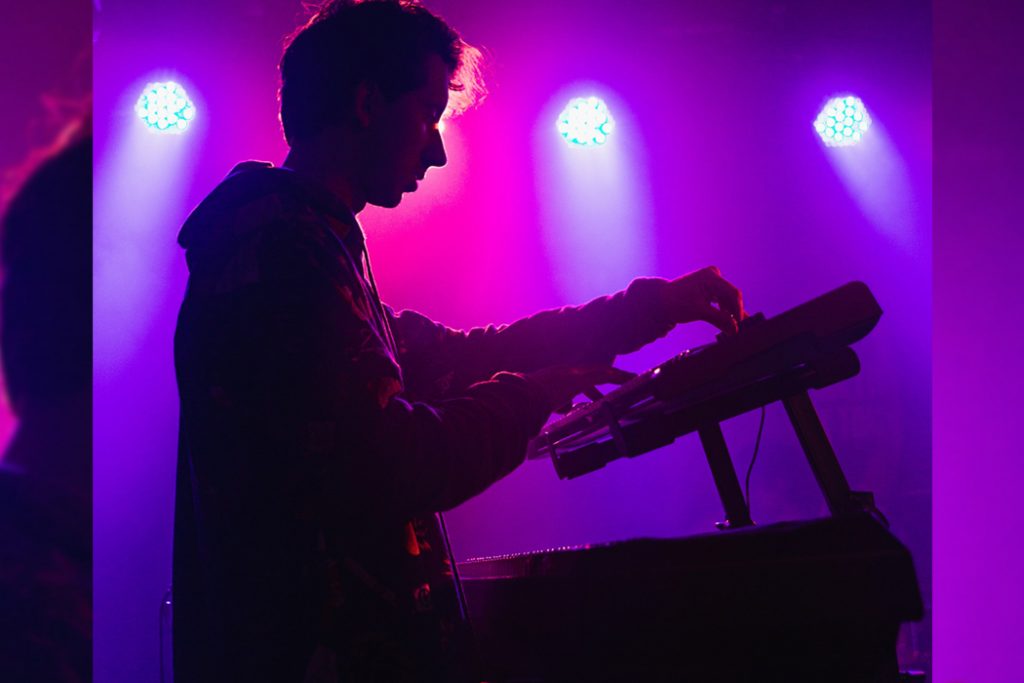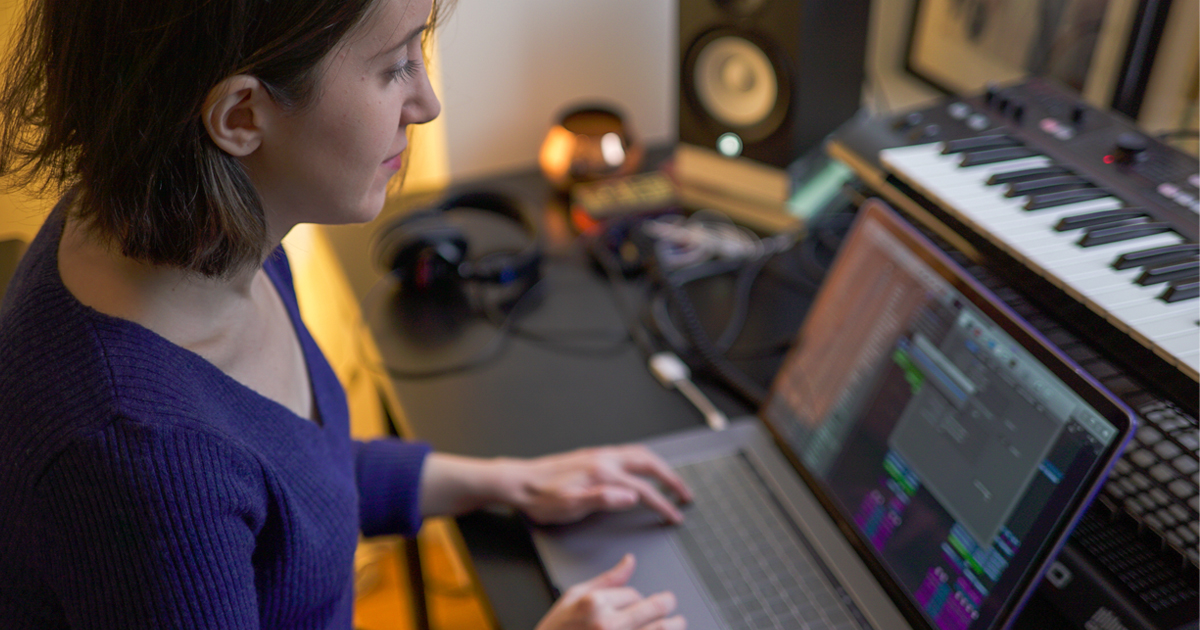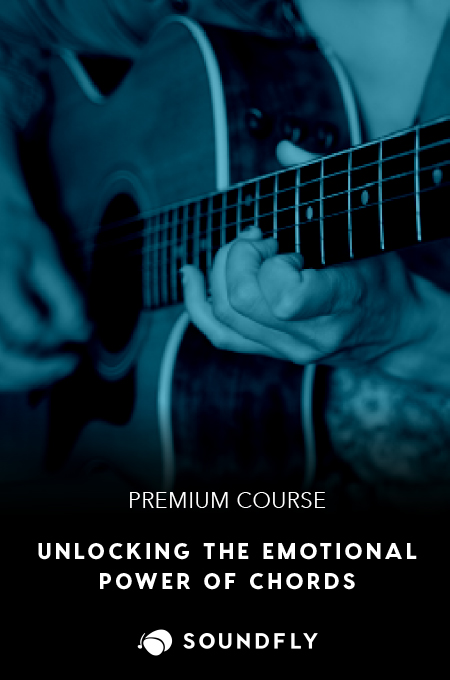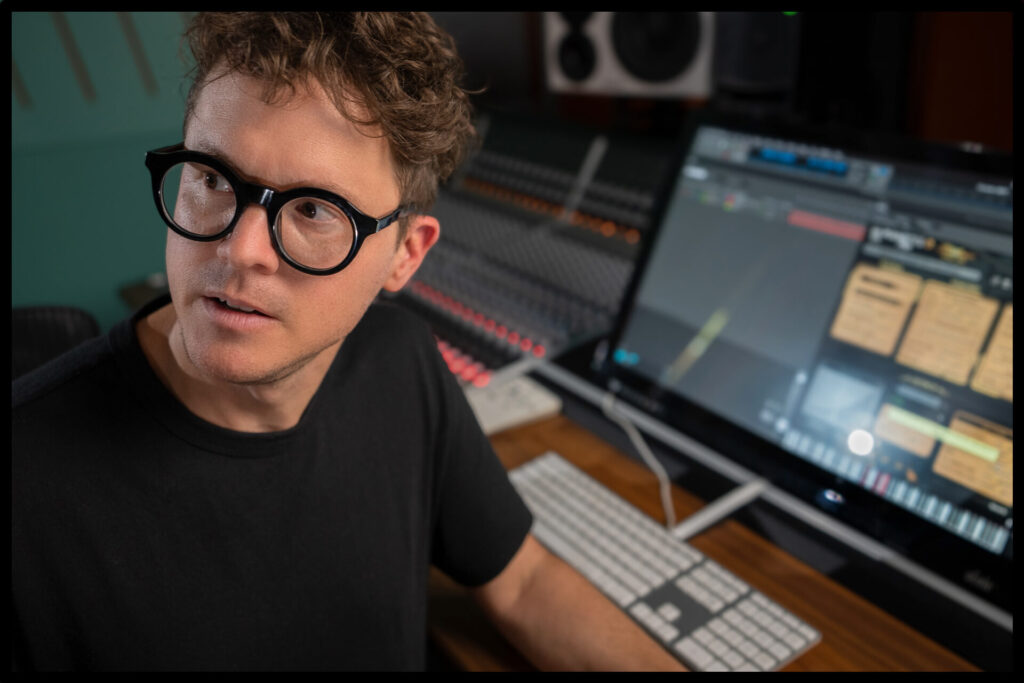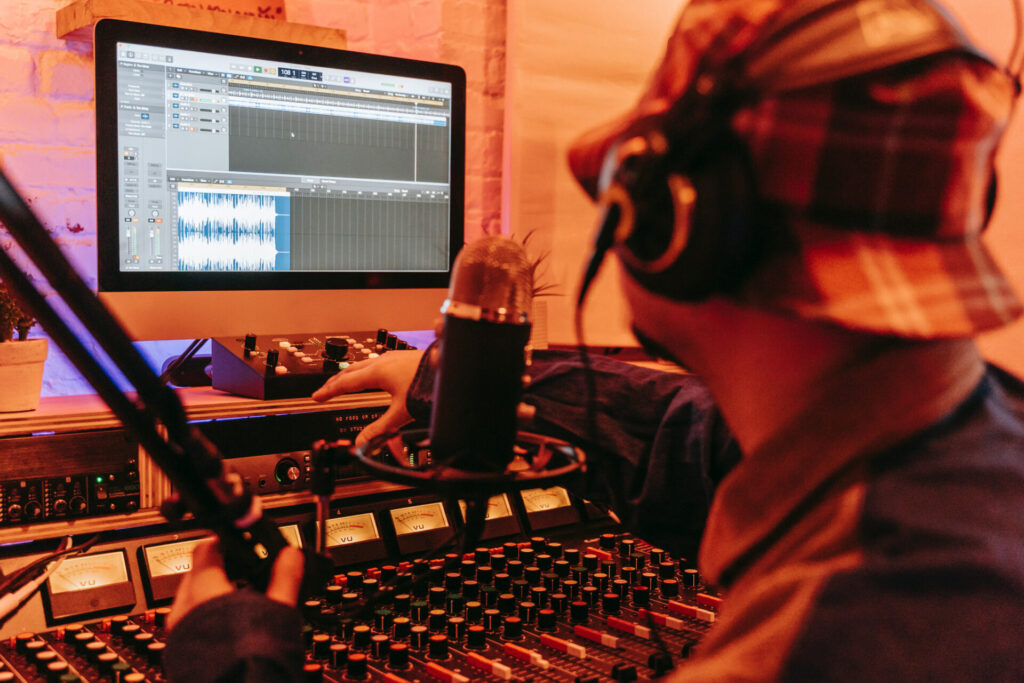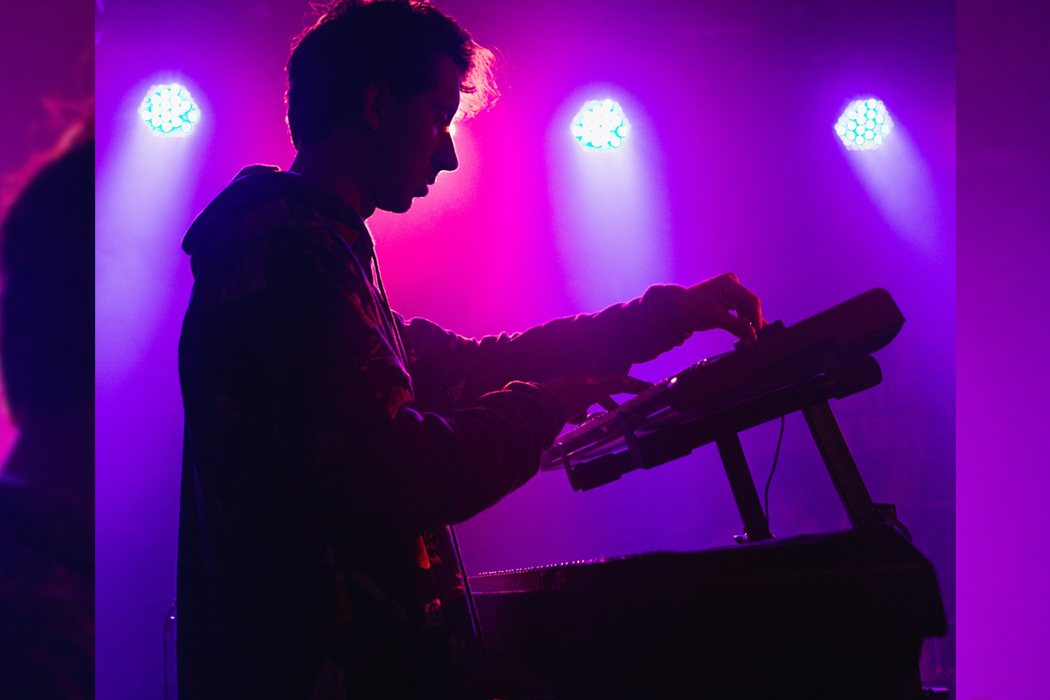
+ Welcome to Soundfly! We help curious musicians meet their goals with creative online courses. Whatever you want to learn, whenever you need to learn it. Subscribe now to start learning on the ’Fly.
By Brandon Miranda
I know. Here is another “New Year’s resolution article” on achieving goals and sticking with them…blah blah. To be honest, I agree that most goal-setting endeavors never work. But please allow me to offer an alternative perspective, and no, this is not about having no goals at all…
I believe that we do not need new goals, we need new relationships with our goals.
Most often, we tie goals and productivity together, by tracking measurable markers and hours spent, in order to gauge our success. This is great, but those practices are still goals within themselves and require a ton of willpower to achieve. Essentially, you’re prepping yourself to fail by setting such unrealistic expectations; and that may lead you to lose any motivation to try again.
It’s a difficult cycle to break.
Goals are only achieved by actions, which are created from behaviors rooted by changes in our mindset. To achieve our goals, we need to first change our mindset (“I will be a Grammy-winning music producer”), and second — the hardest part — change our behavior.
Changing one’s behavior (read: habits) is no easy task. Habit-building requires us to fight against our subconscious, the part of our brain that runs everything on autopilot. This includes all of our good and bad habits, and, the scary part is that if we are used to not completing goals, then our subconscious will find nasty ways to bring us back to that familiar habit.
What’s worse, few actions we take are conscious decisions.
Try going a full day without checking your social media… If this feels natural to you then good for you, but if you are like the rest of us, I am sure you will hit the 3PM mark and feel a certain anxiety for having not yet checked your Instagram feed! This is a habit; you do it without thinking and when this habit is challenged it sends our nervous system into a state of emergency, making all other tasks nearly impossible to focus on.
The great news is that habits, with some consistent effort, can be reprogrammed. And, if achieving large goals can be whittled down to just picking up a few good habits (daily songwriting, 15 minutes of sound design each weekend, etc.) then our practice of behavioral change will put us well on the path towards achieving our goals.
Here is the secret.
We need to create momentum to build a new positive habit. This is done by regularly and consistently exercising our new behavior. Break down the behavior into the smallest, simplest, and most digestible task possible, and your new behavior will become less daunting and easily integrated into your daily routine.
Most importantly, the small wins of completing your bite-sized goals will inherently build your confidence and create a natural draw toward your new, healthy habits. The once-challenging habit will transform itself into a task that offers us joy and excitement.
Here is my five-step framework that my students and I follow to develop new habits (and I will include my career goals as a reference). And, if you’d like to work with me, or any of our other excellent Soundfly mentors, to achieve your musical or career goals this year, just fill out this form and we’ll start a chat!
1. Write down the goal.
Handwriting, yes, actually writing, our goals has a powerful effect on placing these thoughts into the plane of reality. This first essential step will immediately unlock your path towards change and build momentum. Add a timeline to it too; that will introduce a few more layers of actionable accountability and healthy urgency.
(Example: In five years I want to become a Grammy-winning producer and engineer.)
2. Titrate into smaller goals.
Lofty goals are great, but you need to reverse engineer them into smaller goals. We are now designing our plan and pathway — it’s important to acknowledge that life will always throw curveballs and changes our way, so create your path with clear intentions and bite-sized goals along the way.
(Example: Year 1 — sign to a publisher, Year 3 — produce at least three songs for major artists, Year 5 — Grammy nomination)
3. Identify habits and tasks required to complete the goal and arrange each into 30-day sprints.
Here is the fun part, and where all this habit-building comes into play. Start with the most urgent goal on your list and identify 1-3 new habits that will be necessary to achieve it. Try putting a 30-day sprint in place to achieve that goal, and with it, new habits will organically form.
(Example: Write one song a day. Or, share and connect with music industry professionals)
4. Create 15-30 minute exercises to integrate the new habits and implement them for 30 days.
Now we really get to implement and practice. I am using a time format for this case, but the core philosophy is to create an easily digestible framework in which we can visit this habit regularly. Turn it into a ritual and set a recurring time to start the new habit.
Create a format for yourself in which it will take a minimal amount of effort to practice the new habit every day. Important emphasis on every day — this is how momentum is built. Psychologists and athletes both claim that 30 days is a great length of time to instill a new habit.
(Example: I will produce music every day at 9AM for 15-30 minutes. Or, I will send a message to one new music industry contact every day when I check my emails.)
5. Record and reward!
Lastly, we want to have a way to track our progress so we can always look back and see how much we’ve grown and hold ourselves accountable if we need to adjust or restart.
Keep a daily journal where you can reflect on your practice sessions and record all of your feelings (both positive and negative!). There will be moments when you want to stop, but having this log to come back to can serve as a powerful source of perspective and re-inspiration, reminding us of why we embarked on this path in the first place; to achieve our lifelong goals!
Also, be sure to reward yourself when you reach every milestone (i.e: 30 days completed for a new habit)! Maybe there is a new piece of gear you have been dying to buy, a course you wanted to register for or a trip you have been wanting to take. Make the rewards big, your subconscious will love you for this.
Good luck and enjoy your new positive habits! Prioritize momentum over productivity and you will realize that you have much more power over your lives and artistic paths than you think.
Then you might realize (like I have after 2020) that you can and should be setting some even bigger goals. If achieving goals is this easy, then why not shoot for the moon?
Brandon Miranda is a Soundfly Mentor. Click here to work with him to achieve your next musical goal.
Ready for a session of your own?
Soundfly’s community of mentors can help you set the right goals, pave the right path toward success, and stick to schedules and routines that you develop together, so you improve every step of the way. Tell us what you’re working on, and we’ll find the right mentor for you!
—
 Brandon Miranda (artist name, ALX B) is a Los Angeles-based artist, producer and mixing/mastering engineer. Trained under songwriter Lovy Longomba (a former assistant of Dave Pensado) as well as a previous assistant engineer for OWSLA, Brandon possesses unique expertise that spans across numerous genres and disciplines of music. As an engineer, he has credits with artists signed to Warner and Konvict Muzik, and along with his creative endeavors, Brandon has a deep passion for music education.
Brandon Miranda (artist name, ALX B) is a Los Angeles-based artist, producer and mixing/mastering engineer. Trained under songwriter Lovy Longomba (a former assistant of Dave Pensado) as well as a previous assistant engineer for OWSLA, Brandon possesses unique expertise that spans across numerous genres and disciplines of music. As an engineer, he has credits with artists signed to Warner and Konvict Muzik, and along with his creative endeavors, Brandon has a deep passion for music education.
